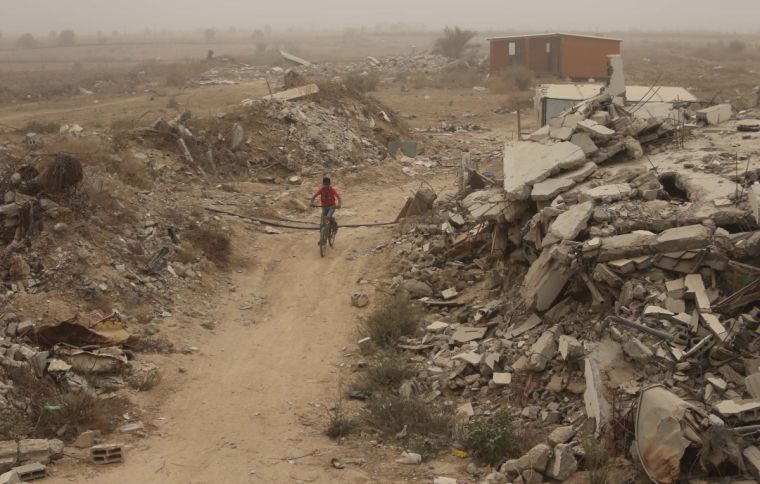Israel detains senior World Vision employee, raids Jerusalem office

Israel has detained a member of staff from World Vision for more than 40 days and raided its Jerusalem office.
World Vision is the world's largest evangelical Christian charity and has operated in Israel-Palestine for more than 40 years.
However, it confirmed to ThinkProgress that one of its employees, Mohammad El Halabi, was detained while working in Gaza.
World Vision's East Jerusalem office released a statement in June saying they were "not aware of his whereabouts and of what (if anything) [El Halabi] is being accused,".
It said he was detained on June 15 at the Erez checkpoint on his way home from routine meetings and was held without access to legal counsel or family visits.
An update on Friday said his detention had been extended until August 2.
The statement said: "We will continue to reach out to the relevant authorities including calling on Israeli authorities to release Mohammad or allow him access to legal support."
It continued: "World Vision stands by Mohammad who is a widely respected and well regarded humanitarian, field manager and trusted colleague of over a decade. He has displayed compassionate leadership on behalf of the children and communities of Gaza through difficult and challenging times, and has always worked diligently and professionally in fulfilling his duties."
Israel frequently places Palestinians in "administrative detention", a process that does not require an indictment or trial. The practice has been widely condemned by human rights organisations who say it is open to abuse.
The apparent targeting of a World Vision employee for such a long period of detention marks an unusual attack on a charity run by a wing of the church with which Israel generally enjoys good relations. However, World Vision has been critical of Israel's policy toward the Palestine issue in the past. Its vice-president Steve Haas wrote an article for the Lausanne movement questioning Christian Zionism, saying: "This theological position has backed the largest and longest occupation of another people group in modern history, an oppressive Israeli legal system which [Archbishop Desmond] Tutu and many other church leaders have called 'apartheid on steroids'."
The organisation subsequently distanced itself from Haas' comments after fierce criticism from Christian Zionists, saying "broad statements such as those in the Lausanne piece oversimplify issues at hand, limit meaningful dialogue, and harden staunch perspectives toward the conflict". The comments about Christian Zionism in the article were "unhelpfully simplified and combative" and "limit meaningful dialogue between people who care about peace in the region".
However, it reiterated its position that a two-state solution was desirable.
Israel's continuing blockade of Gaza has led to the territory facing what aid agencies are calling a humanitarian catastrophe. Clean water is in desperately short supply, there is no sewage treatment and a UN report has said by 2020 there will no drinkable water there at all.











